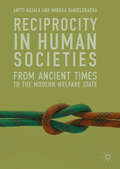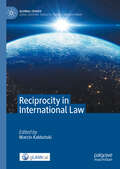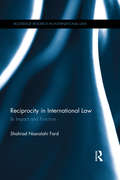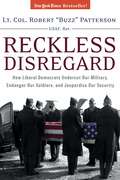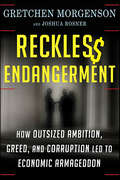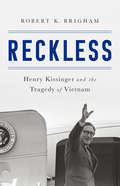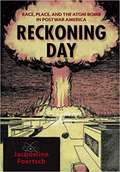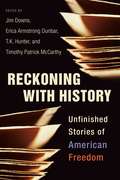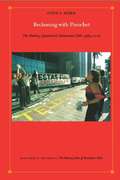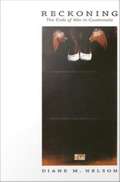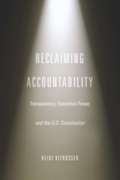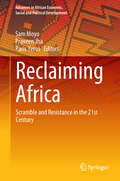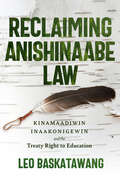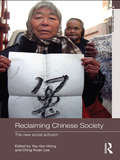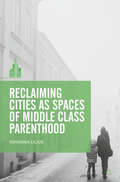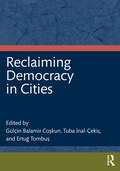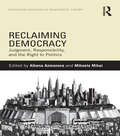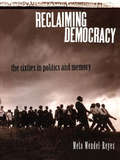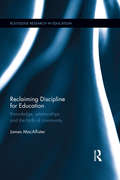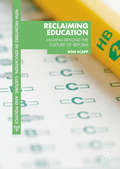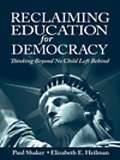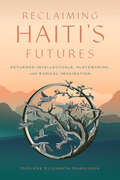- Table View
- List View
Reciprocity in Human Societies: From Ancient Times to the Modern Welfare State
by Antti Kujala Mirkka DanielsbackaPresenting new insights into reciprocity, this book combines Marcel Mauss’s well-known gift theory with Barrington Moore’s idea of mutual obligations linking rulers and the ruled. Teasing out the interrelatedness of these approaches, Reciprocity in Human Societies suggests that evolutionary psychology reveals a human tendency for reciprocity and collaboration, not only in a mutually cooperative way but also through increasing retributive moral emotions. The book discusses various historical societies and the different models of the current welfare state—Nordic (social democratic), conservative, and liberal— and the repercussions of the neoliberal policies of tax havens, tax cuts, and austerity with a cross-disciplinary approach that bridges evolutionary psychology, sociology, and social anthropology with history.
Reciprocity in International Law (Global Issues)
by Marcin KałduńskiThe world is changing. The era of globalization – where the states have been eager to cooperate towards common aims – might seem to be disappearing. Russia expresses a contempt for international law, China makes claim to power, while the United States, at least temporarily, shows disregard to international institutions they themselves created (in particular, the WTO and the WHO). The growing phenomenon of nationalistic and authoritarian leaders may seem to hamper the development of community interests. Some states may be more inclined to resort to reciprocal behaviour as certain events indicate (e.g., the exchange of prisoners-of-war in the Russia-Ukraine conflict and an exchange of economic sanctions – tit-for-tat or tat-for-tat). The field of international law appears to be returning to first principles in the light of multiple world crises. Thus, reciprocity – as a classic concept of international law – may “come back from the shadows,” be reinvented and reinforced to form one of the basic pillars in the relations among states. Given the above, the purpose of the book is to rediscover and identify the position and role of reciprocity in contemporary international law.
Reciprocity in International Law: Its impact and function (Routledge Research in International Law)
by Shahrad Nasrolahi FardIn international relations, reciprocity describes an environment in which States support one another for short- or long-term advantage through the balancing of rights, duties and interests. This book examines reciprocity in the context of international law. It considers the role reciprocity plays in the creation and development of international law as well as in the interpretation and application of international law. The book illuminates the reciprocal framework of international law and international relations by examining the role reciprocity plays in different types of States’ obligations, including bilateral, bilateralisable multilateral, non-bilateralisable multilateral and obligations erga omnes. The book examines how reciprocity is intertwined with the principle of equality, as the rights and obligations of States are equal irrespective of size and economic or military strength, and the beneficial effects of reciprocity in creating stability and cooperation amongst States.
Reckless Disregard: How Liberal Democrats Undercut Our Military, Endanger Our Soldiers And Jeopardize Our Security
by Robert PattersonReckless Disregard: How Liberal Democrats Undercut Our Military, Endanger Our Soldiers And Jeopardize Our Security by Robert Patterson
Reckless Endangerment: How Outsized Ambition, Greed, and Corruption Led to Economic Armageddon
by Gretchen Morgenson Joshua RosnerA Washington Post Notable Nonfiction Book for 2011One of The Economist's 2011 Books of the Year TheNew York Times's Pulitzer Prize-winning columnist reveals how the financial meltdown emerged from the toxic interplay of Washington, Wall Street, and corrupt mortgage lendersIn Reckless Endangerment, Gretchen Morgenson, the star business columnist of The New York Times, exposes how the watchdogs who were supposed to protect the country from financial harm were actually complicit in the actions that finally blew up the American economy. Drawing on previously untapped sources and building on original research from coauthor Joshua Rosner—who himself raised early warnings with the public and investors, and kept detailed records—Morgenson connects the dots that led to this fiasco. Morgenson and Rosner draw back the curtain on Fannie Mae, the mortgage-finance giant that grew, with the support of the Clinton administration, through the 1990s, becoming a major opponent of government oversight even as it was benefiting from public subsidies. They expose the role played not only by Fannie Mae executives but also by enablers at Countrywide Financial, Goldman Sachs, the Federal Reserve, HUD, Congress, the FDIC, and the biggest players on Wall Street, to show how greed, aggression, and fear led countless officials to ignore warning signs of an imminent disaster. Character-rich and definitive in its analysis, this is the one account of the financial crisis you must read.
Reckless: Henry Kissinger and the Tragedy of Vietnam
by Robert K. BrighamHenry Kissinger's role in the Vietnam War prolonged the American tragedy and doomed the government of South Vietnam The American war in Vietnam was concluded in 1973 after eight years of fighting, bloodshed, and loss. Yet the terms of the truce that ended the war were effectively identical to what had been offered to the Nixon administration four years earlier. Those four years cost America and Vietnam thousands of lives and billions of dollars, and they were the direct result of the supposed master plan of the most important voice in American foreign policy: Henry Kissinger. Using newly available archival material from the Nixon Presidential Library, Kissinger's personal papers, and material from the archives in Vietnam, Robert K. Brigham punctures the myth of Kissinger as an infallible mastermind. Instead, he constructs a portrait of a rash, opportunistic, and suggestible politician. It was personal political rivalries, the domestic political climate, and strategic confusion that drove Kissinger's actions. There was no great master plan or Bismarckian theory that supported how the US continued the war or conducted peace negotiations. Its length was doubled for nothing but the ego and poor judgment of a single figure. This distant tragedy, perpetuated by Kissinger's actions, forever changed both countries. Now, perhaps for the first time, we can see the full scale of that tragedy and the machinations that fed it.
Reckoning Day: Race, Place, and the Atom Bomb in Postwar America
by Jacqueline FoertschToo often lost in our understanding of the American Cold War crisis, with its nuclear brinkmanship and global political chess game, is the simultaneous crisis on the nation's racial front. Reckoning Day is the first book to examine the relationship of African Americans to the atom bomb in postwar America. It tells the wide-ranging story of African Americans’ response to the atomic threat in the postwar period. It examines the anti-nuclear writing and activism of major figures such as W.E.B. Du Bois, Dr. Martin Luther King Jr., and Lorraine Hansberry as well as the placement (or absence) of black characters in white-authored doomsday fiction and nonfiction. Author Jacqueline Foertsch analyzes the work of African American thinkers, activists, writers, journalists, filmmakers, and musical performers in the "atomic" decades of 1945 to 1965 and beyond. Her book tells the dynamic story of commitment and interdependence, as these major figures spoke with force and eloquence for nuclear disarmament, just as they argued unstintingly for racial equality on numerous other occasions. Foertsch also examines the location of African American characters in white-authored doomsday novels, science fiction, and survivalist nonfiction such as government-sponsored forecasts regarding post-nuclear survival. In these, black characters are often displaced or absented entirely: in doomsday narratives they are excluded from executive decision-making and the stories' often triumphant conclusions; in the nonfiction, they are rarely envisioned amongst the "typical American" survivors charged with rebuilding US society. Throughout Reckoning Day, issues of placement and positioning provide the conceptual framework: abandoned at "ground zero" (America's inner cities) during the height of the atomic threat, African Americans were figured in white-authored survival fiction as compliant servants aiding white victory over atomic adversity, while as historical figures they were often perceived as "elsewhere" (indifferent) to the atomic threat. In fact, African Americans' "position" on the bomb was rarely one of silence or indifference. Ranging from appreciation to disdain to vigorous opposition, atomic-era African Americans developed diverse and meaningful positions on the bomb and made essential contributions to a remarkably American dialogue.
Reckoning Day: Race, Place, and the Atom Bomb in Postwar America
by Jacqueline FoertschToo often lost in our understanding of the American Cold War crisis, with its nuclear brinkmanship and global political chess game, is the simultaneous crisis on the nation's racial front. Reckoning Day is the first book to examine the relationship of African Americans to the atom bomb in postwar America. It tells the wide-ranging story of African Americans' response to the atomic threat in the postwar period. It examines the anti-nuclear writing and activism of major figures such as W.E.B. Du Bois, Dr. Martin Luther King Jr., and Lorraine Hansberry as well as the placement (or absence) of black characters in white-authored doomsday fiction and nonfiction. Author Jacqueline Foertsch analyzes the work of African American thinkers, activists, writers, journalists, filmmakers, and musical performers in the "atomic" decades of 1945 to 1965 and beyond. Her book tells the dynamic story of commitment and interdependence, as these major figures spoke with force and eloquence for nuclear disarmament, just as they argued unstintingly for racial equality on numerous other occasions. Foertsch also examines the location of African American characters in novels, science fiction, and survivalist nonfiction such as government-sponsored forecasts regarding post-nuclear survival. In these, black characters are often displaced or absented entirely: in doomsday narratives they are excluded from executive decision-making and the stories' often triumphant conclusions; in the nonfiction, they are rarely envisioned amongst the "typical American" survivors charged with rebuilding US society. Throughout Reckoning Day, issues of placement and positioning provide the conceptual framework: abandoned at "ground zero" (America's inner cities) during the height of the atomic threat, African Americans were figured in white-authored survival fiction as compliant servants aiding white victory over atomic adversity, while as historical figures they were often perceived as "elsewhere" (indifferent) to the atomic threat. In fact, African Americans' "position" on the bomb was rarely one of silence or indifference. Ranging from appreciation to disdain to vigorous opposition, atomic-era African Americans developed diverse and meaningful positions on the bomb and made essential contributions to a remarkably American dialogue.
Reckoning with History: Unfinished Stories of American Freedom
by Downs, Jim; Dunbar, Erica Armstrong; Hunter, T. K.; McCarthy, Timothy PatrickReckoning with History brings together original essays from a diverse group of historians who consider how writing about the past can engage with the urgent issues of the present. The contributors—all former students of the distinguished Columbia University historian Eric Foner—explore the uses and politics of history through key episodes across a wide range of struggles for freedom. They shed new light on how different groups have defined and fought for freedom throughout American history, as well as the ways in which the ideal of freedom remains unrealized today. Covering a broad range of topics, these essays offer insight into how historians practice their craft in different ways and illuminate what it means to be a socially and politically engaged historian.
Reckoning with Pinochet: The Memory Question in Democratic Chile, 1989-2006
by Steve J. SternReckoning with Pinochet is the first comprehensive account of how Chile came to terms with General Augusto Pinochet's legacy of human rights atrocities. An icon among Latin America's "dirty war" dictators, Pinochet had ruled with extreme violence while building a loyal social base. Hero to some and criminal to others, the general cast a long shadow over Chile's future. Steve J. Stern recounts the full history of Chile's democratic reckoning, from the negotiations in 1989 to chart a post-dictatorship transition; through Pinochet's arrest in London in 1998; the thirtieth anniversary, in 2003, of the coup that overthrew President Salvador Allende; and Pinochet's death in 2006. He shows how transnational events and networks shaped Chile's battles over memory, and how the Chilean case contributed to shifts in the world culture of human rights. Stern's analysis integrates policymaking by elites, grassroots efforts by human rights victims and activists, and inside accounts of the truth commissions and courts where top-down and bottom-up initiatives met. Interpreting solemn presidential speeches, raucous street protests, interviews, journalism, humor, cinema, and other sources, he describes the slow, imperfect, but surprisingly forceful advance of efforts to revive democratic values through public memory struggles, despite the power still wielded by the military and a conservative social base including the investor class. Over time, resourceful civil-society activists and select state actors won hard-fought, if limited, gains. As a result, Chileans were able to face the unwelcome past more honestly, launch the world's first truth commission to examine torture, ensnare high-level perpetrators in the web of criminal justice, and build a public culture of human rights. Stern provides an important conceptualization of collective memory in the wake of national trauma in this magisterial work of history.
Reckoning with Revolutionary Yemen Under Saudi-American Bombs
by Nalini PersramThis critical study investigates why the US-backed Saudi-led coalition began bombing Yemen in 2015 and who represent the main protagonists and targets of the military intervention. How was an illegal military campaign resulting in the worst human-made humanitarian crisis in a century allowed to happen? A so-called proxy war involving Ansar Allah (the Houthis) who receive support from Iran, the rhetorical trigger of the intervention was the state coup in 2014 by Ansar Allah and Yemen&’s deposed authoritarian leader, Saleh, that left the &‘internationally recognized&’ government of Hadi confined to the south, and the Ansar Allah-dominated coalition the de facto power in the north. The facilitating conditions of Yemen&’s civil war and its internationalization are traced back multifariously to the hijacking of the democratic Youth Revolution of 2011 by US-Saudi-backed Yemeni elites, Saleh&’s Saudi-funded war against the Houthis in the 2000s, and the Republican Revolution of 1962 that overthrew the Imamate. US imperialism, Saudi regional ambition, and the Gulf oil monarchies&’ determination to keep Yemen weak are, by a global neoliberal corporate monopoly capitalism, hinged to a Yemeni tribal republic constituted by decentralized, neopatrimonial power structured by a kleptocratic-tribal-military nexus. Non-tribal Ansar Allah represent Saudi Arabia&’s greatest dread: Yemeni autonomy.
Reckoning: The Ends of War in Guatemala
by Diane M. NelsonFollowing the 1996 treaty ending decades of civil war, how are Guatemalans reckoning with genocide, especially since almost everyone contributed in some way to the violence? Meaning "to count, figure up" and "to settle rewards and punishments," reckoning promises accounting and accountability. Yet as Diane M. Nelson shows, the means by which the war was waged, especially as they related to race and gender, unsettled the very premises of knowing and being. Symptomatic are the stories of duplicity pervasive in postwar Guatemala, as the left, the Mayan people, and the state were each said to have "two faces. " Drawing on more than twenty years of research in Guatemala, Nelson explores how postwar struggles to reckon with traumatic experience illuminate the assumptions of identity more generally. Nelson brings together stories of human rights activism, Mayan identity struggles, coerced participation in massacres, and popular entertainment--including traditional dances, horror films, and carnivals--with analyses of mass-grave exhumations, official apologies, and reparations. She discusses the stereotype of the Two-Faced Indian as colonial discourse revivified by anti-guerrilla counterinsurgency and by the claims of duplicity leveled against the Nobel laureate Rigoberta Mench, and she explores how duplicity may in turn function as a survival strategy for some. Nelson examines suspicions that state power is also two-faced, from the left's fears of a clandestine para-state behind the democratic faade, to the right's conviction that NGOs threaten Guatemalan sovereignty. Her comparison of antimalaria and antisubversive campaigns suggests biopolitical ways that the state is two-faced, simultaneously giving and taking life. Reckoning is a view from the ground up of how Guatemalans are finding creative ways forward, turning ledger books, technoscience, and even gory horror movies into tools for making sense of violence, loss, and the future.
Reclaiming Accountability: Transparency, Executive Power, and the U.S. Constitution
by Heidi KitrosserAmericans tend to believe in government that is transparent and accountable. Those who govern us work for us, and therefore they must also answer to us. But how do we reconcile calls for greater accountability with the competing need for secrecy, especially in matters of national security? Those two imperatives are usually taken to be antithetical, but Heidi Kitrosser argues convincingly that this is not the case--and that our concern ought to lie not with secrecy, but with the sort of unchecked secrecy that can result from "presidentialism,” or constitutional arguments for broad executive control of information. In Reclaiming Accountability, Kitrosser traces presidentialism from its start as part of a decades-old legal movement through its appearance during the Bush and Obama administrations, demonstrating its effects on secrecy throughout. Taking readers through the key presidentialist arguments--including "supremacy” and "unitary executive theory”--she explains how these arguments misread the Constitution in a way that is profoundly at odds with democratic principles. Kitrosser’s own reading offers a powerful corrective, showing how the Constitution provides myriad tools, including the power of Congress and the courts to enforce checks on presidential power, through which we could reclaim government accountability.
Reclaiming Africa: Scramble and Resistance in the 21st Century (Advances in African Economic, Social and Political Development)
by Sam Moyo Praveen Jha Paris YerosThis book presents the findings of research conducted by scholars and activists associated with the Agrarian South Network, based mainly in Africa, Asia and Latina America. The research articulates a Southern perspective on the “new scramble” for Africa, with a view to strengthen tri-continental solidarities. The book explains the significance of the new scramble in terms of the economic structures inherited from the late-nineteenth-century scramble and the subsequent post-independence period. The renewed competition for Africa’s land and natural resources and the resumption of economic growth at the turn of the millennium have revived concerns regarding the continent’s position in the world economy and the prospects for its development in the twenty-first century. In this regard, the book addresses two related issues: the character of the expansion of Southern competitors in relation to the more established Western strategies; and the impact of the renewed influx of investments in land, minerals, and associated infrastructure. The findings are presented with empirical rigor and conceptual clarity, to enable the reader to grasp what really is at stake in the twenty-first century – an epic struggle to reclaim Africa from the monopolies that exercise control over its land, minerals, labour, and destiny.
Reclaiming American Virtue: The Human Rights Revolution of the 1970s
by Barbara J. KeysThe American commitment to international human rights emerged in the 1970s not as a logical outgrowth of American idealism but as a surprising response to national trauma, as Barbara Keys shows in this provocative history. Reclaiming American Virtue situates this novel enthusiasm as a reaction to the profound challenge of the Vietnam War and its tumultuous aftermath. Instead of looking inward for renewal, Americans on the right and the left alike looked outward for ways to restore America's moral leadership. Conservatives took up the language of Soviet dissidents to resuscitate a Cold War narrative that pitted a virtuous United States against the evils of communism. Liberals sought moral cleansing by dissociating the United States from foreign malefactors, spotlighting abuses such as torture in Chile, South Korea, and other right-wing allies. When Jimmy Carter in 1977 made human rights a central tenet of American foreign policy, his administration struggled to reconcile these conflicting visions. Yet liberals and conservatives both saw human rights as a way of moving from guilt to pride. Less a critique of American power than a rehabilitation of it, human rights functioned for Americans as a sleight of hand that occluded from view much of America's recent past and confined the lessons of Vietnam to narrow parameters. It would be a small step from world's judge to world's policeman, and American intervention in the name of human rights would be a cause both liberals and conservatives could embrace.
Reclaiming Anishinaabe Law: Kinamaadiwin Inaakonigewin and the Treaty Right to Education
by Leo BaskatawangA manifesto for the future of Indigenous Education in Canada In Reclaiming Anishinaabe Law Leo Baskatawang traces the history of the neglected treaty relationship between the Crown and the Anishinaabe Nation in Treaty #3, and the Canadian government’s egregious failings to administer effective education policy for Indigenous youth—failures epitomized by, but not limited to, the horrors of the residential school system. Rooted in the belief that Indigenous education should be governed and administered by Indigenous peoples, Baskatawang envisions a hopeful future for Indigenous nations where their traditional laws are formally recognized and affirmed by the governments of Canada. Baskatawang thereby details the efforts being made in Treaty #3 territory to revitalize and codify the Anishinaabe education law, kinamaadiwin inaakonigewin. Kinamaadiwin inaakonigewin considers education wholistically, such that it describes ways of knowing, being, doing, relating, and connecting to the land that are grounded in tradition, while also positioning its learners for success in life, both on and off the reserve. As the backbone of an Indigenous-led education system, kinamaadiwin inaakonigewin enacts Anishinaabe self-determination, and has the potential to bring about cultural resurgence, language revitalization, and a new era of Crown-Indigenous relations in Canada. Reclaiming Anishinaabe Law challenges policy makers to push beyond apologies and performative politics, and to engage in meaningful reconciliation practices by recognizing and affirming the laws that the Anishinaabeg have always used to govern themselves.
Reclaiming Chinese Society: The New Social Activism (Asia's Transformations)
by Ching Kwan Lee You-Tien HsingReclaiming Chinese Society analyses the mechanisms, processes and actors producing a wide spectrum of social and cultural changes in reform China. Contrary to most literature that emphasizes economic and political processes at the expense of Chinese society, this volume argues for the centrality of the social in understanding Chinese development. Each of the eleven chapters addresses one type of grassroots activism, covering feminist activism, civic environmentalism, religious revival, violence, film, media, intellectuals, housing, citizenship and deprivation. The wide-range of research styles used in this collection, including ethnography, regional comparison, quantitative and statistical analysis, interviews, textual and content analysis, offers students a methodologically rich vista to China Studies. Written by subject experts and covering all aspects of Chinese Society, this book offers an authoritative overview of Chinese society. It is an invaluable resource for courses on Chinese Society and culture and will be of interest to students and scholars in Chinese and Asian studies.
Reclaiming Cities as Spaces of Middle Class Parenthood (The Contemporary City)
by Johanna LiliusFor nearly a century families have been out-migrating to suburbs and peri-urban areas. In this book, Johanna Lilius conceptualizes the relatively recent phenomenon of families choosing to live in the inner city. Drawing on a range of qualitative data, the book offers a holistic approach to simultaneously understanding changes within parenting practices and changes connected to city development. The book explains not only why families choose to stay in the inner city and how they use the city in their everyday lives, but also how families change the landscape of contemporary cities, and how the family is, and has been, perceived in urban planning and policy-making. The Nordic perspective provided by Lilius makes this book an important contribution in helping understand inner city change outside the Anglo-American context, and will appeal to an international audience.
Reclaiming Democracy in Cities
by Gülçin Balamir Coşkun Tuba İnal-Çekiç Ertuğ TombuşEffective urban governance is essential in responding to the challenges of inequality, migration, public health, housing, security, and climate change. Reclaiming Democracy in Cities frames the city as a political actor in its own right, exploring the city’s potential to develop deliberative and participatory practices which help inform innovative democratic solutions to modern day challenges.Bringing together expertise from an international selection of scholars from various fields, this book begins with three chapters which discuss the theoretical idea of the democratic city and the real-world applicability of such a model. Part II discusses new and innovative democratic practices at the local level and asks in what way these practices help us to rethink democratic politics, institutions, and mechanisms in order to move toward a more egalitarian, pluralist, and inclusive direction. Drawing on the Istanbul municipal elections and the Kurdish municipal experience, Part III focuses on the question of whether cities and local governments can lead to the emergence of strong democratic forces that oppose authoritarian regimes. Finally, Part IV discusses urban solidarity networks and collaborations at both the local level and beyond the nation, questioning whether urban solidarity networks and alliances with civil society or transnational city networks can create alternative ways of thinking about the city as a locus of democracy.This edited volume will appeal to academics, researchers, and advanced students in the fields of urban studies, particularly those with an interest in democratic theory; local democracy; participation and municipalities. It will also be relevant for practitioners of local governments, NGOs, and advocacy groups and activists working for solidarity networks between cities.
Reclaiming Democracy: Judgment, Responsibility and the Right to Politics (Routledge Advances in Democratic Theory)
by Albena Azmanova Mihaela MihaiDemocracy is in shambles economically and politically. The recent economic meltdown in Europe and the U.S. has substituted democratic deliberation with technocratic decisions. In Athens, Madrid, Lisbon, New York, Pittsburgh or Istanbul, protesters have denounced the incapacity and unwillingness of elected officials to heed to their voices. While the diagnosis of our political-economic illness has been established, remedies are hard to come. What can we do to restore our broken democracy? Which modes of political participation are likely to have an impact? And what are the loci of political innovation in the wake of the crisis? It is with these questions that Reclaiming Democracy engages. We argue that the managerial approach to solving the crisis violates ‘a right to politics’, that is, a right that our collective life be guided by meaningful politics: by discussion of and decision among genuinely alternative principles and policies. The contributors to this volume are united in their commitment to explore how and where this right can be affirmed in a way that resuscitates democracy in the wake of the crisis. Mixing theoretical reflection and empirical analysis the book offers fresh insights into democracy’s current conundrum and makes concrete proposals about how ‘the right to politics’ can be protected.
Reclaiming Democracy: The Sixties in Politics and Memory
by Meta Mendel-ReyesMeta Mendel-Reyes provides a critical look at our fascination with the sixties, discusses the ways in which democratic participation was at the heart of sixties politics, and explores the interrelationship between the history and memory of the sixties and contemporary democratic politics. Mendel-Reyes stresses that if told properly, the story of the sixties could help open our eyes to the possibility that ordinary people can take democratic action and do have the ability to make a difference in nineties politics. In a time of cynicism about the American government's ability to solve the crises of inequality, poverty and racism, Mendel-Reyes puts the decline of political participation in historical context and provides hope for the coming decades.
Reclaiming Discipline for Education: Knowledge, relationships and the birth of community (Routledge Research in Education)
by James MacAllisterDiscipline is of profound educational importance, both inside educational institutions and outside of them in personal and social life. Reclaiming Discipline for Education revisits neglected philosophical ideas about discipline in education and uses these ideas to re-think practices and discourses of discipline in education today. Chapters in this book trace the evolution of thought regarding discipline in education all the way from Kant through to Durkheim, Foucault, Peters, Dewey and Macmurray. MacAllister also critically examines the strengths and weaknesses of contemporary school discipline practices in the UK, the US and Australia, including behaviour management, zero tolerance and restorative approaches. The educational credentials of psychological constructs of grit and self-discipline are also questioned. This book concludes by considering the current and future state of discipline in education on the basis of the different philosophical, practical and policy perspectives discussed. In particular, MacAllister examines why it is problematic to consider practices of discipline in isolation from the wider purposes of education. This book is suitable for an international audience and should be read by anyone who is interested in education and educational leadership, as well as those interested in the philosophy of education.
Reclaiming Education
by Ron ScappThis book is an appeal to those directly andindirectly involved in education reform to reconsider the very nature ofeducation as a process of transformation and not, as the neoliberal corporatemodel insists upon, as a "product. " By using Paulo Freire's fundamentalprinciple of understanding "education as the practice of freedom," and expanding upon it with bell hooks' ownspiritual understanding of that principle, this book offers readers theopportunity to rethink what education is, and what it is not. Utilizing the work of diverse thinkers andcritics, the book lays out a criticism of neoliberalism's profound influence oneducation reform and our culture generally. It reaffirms the political andethical import of education for individuals and for our nation as a whole.
Reclaiming Education for Democracy: Thinking Beyond No Child Left Behind (Sociocultural, Political, and Historical Studies in Education)
by Elizabeth E. Heilman Paul ShakerReclaiming Education for Democracy subjects the prophets and doctrines of educational neoliberalism to scrutiny in order to provide a rationale and vision for public education beyond the limits of No Child Left Behind. The authors combine a history of recent education policy with an in- depth analysis of the origins of such policy and its impact on professional educators. The public face of these policies is separated from motives rooted in politics, profit, and ideology. The book also searches for new insights in understanding the neoliberal and managerialist assault on education by examining the psychology of advocates who demonstrate a special animus toward universal public education. The manipulation of public education by No Child Left Behind is a case study in the general approach to public institutions taken by the politicians and theorists in these camps. K-12 education has been subjected to deceptive descriptive analyses, marginalization of its professional leadership, manipulation of its goals, the imposition of illegitimate quality markers, a grab on its resources by corporate profiteers, and a demoralization of its rank and file. This book helps us think beyond this new commonsense of education. Recipient: 2009 AERA Division K Award for Exemplary Research in Teaching and Teacher Education
Reclaiming Haiti's Futures: Returned Intellectuals, Placemaking, and Radical Imagination (Critical Caribbean Studies)
by Darlène Elizabeth DubuissonHaiti was once a beacon of Black liberatory futures, but now it is often depicted as a place with no future where emigration is the only way out for most of its population. But Reclaiming Haiti's Futures tells a different story. It is a story about two generations of Haitian scholars who returned home after particular crises to partake in social change. The first generation, called jenerasyon 86, were intellectuals who fled Haiti during the Duvalier dictatorship (1957–1986). They returned after the regime fell to participate in the democratic transition through their political leadership and activism. The younger generation, dubbed the jenn doktè, returned after the 2010 earthquake to partake in national reconstruction through public higher education reform. An ethnography of the future, the book explores how these returned scholars resisted coloniality's fractures and displacements by working toward and creating inhabitability or future-oriented places of belonging through improvisation, rasanblaj (assembly), and radical imagination. By centering on Haiti and the Caribbean, the book offers insights not just into the Haitian experience but also into how fractures have come to typify more aspects of life globally and what we might do about it.
